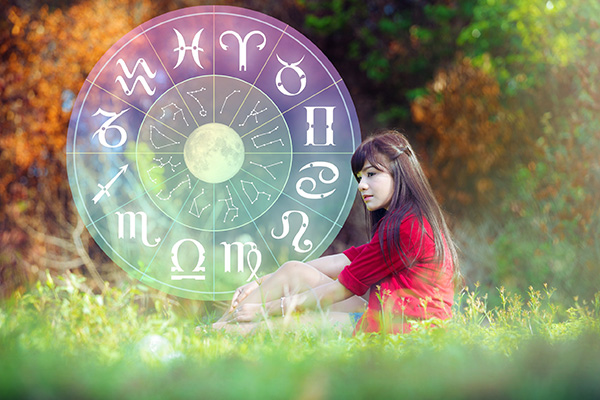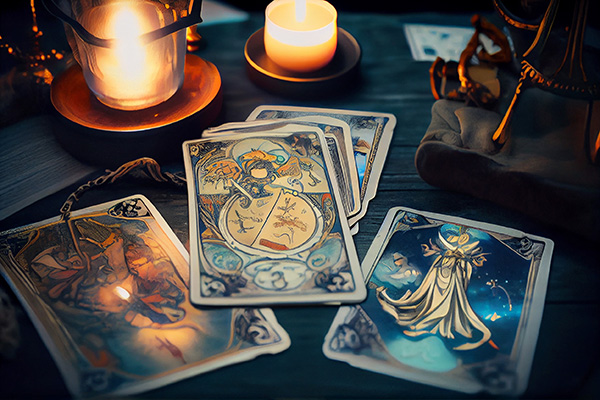 In every kind of relationship – whether romantic, friendly, or work-related – there exists a metaphysical bond that facilitates the exchange of energy between individuals.
In every kind of relationship – whether romantic, friendly, or work-related – there exists a metaphysical bond that facilitates the exchange of energy between individuals.
Think of these energy bonds as similar to WiFi connections, electrical circuits, or even medical tubing, transmitting mental, emotional, and spiritual energies among people. They are the unseen connections of affection that keep us tied to those we cherish.
I recall an article from years back detailing the profound sorrow of renowned American vocalist Dean Martin following the heartbreaking loss of his eldest child. His son, a fighter pilot in the California Air National Guard, tragically died in an aircraft crash during a training exercise in 1987.
Martin expressed the pain of his loss as if his “heart had been torn from his chest.” This powerful imagery highlights the reality of these emotional connections. The deep anguish he experienced was fundamentally his heart chakra feeling ‘shattered.’ The grief significantly influenced the rest of his life and career.
Though the idea of these connections may appear abstract, their influences are quite concrete. They are not mere symbols; they are very real and significantly impact our physical, emotional, mental, and spiritual health daily.
As we engage in relationships with others, energetic connections extend from our chakras, or energy centers, to those of another. While these soul-to-soul connections nourish us with positive energies stemming from our bonds, like love, care, and a sense of belonging, they can conversely bring adverse effects.
If there’s someone you’re fixated on or yearn to see again…then you almost certainly have an energetic cord binding you to them ~ Gabrielle Bernstein
Consider the negative, even harmful, thoughts and feelings that can seep through these connections, particularly those rooted in fear. They can manifest as anxiety over abandonment, grudges, dependency, anger, bitterness, or other detrimental emotions that can weigh heavily on your heart and mind and potentially harm your physical health. If these ties remain unaddressed, they can fuel cycles of stress and dysfunction, leaving you feeling trapped, overwhelmed, or depressed.
To complicate matters, certain energy connections can hinder your soul’s growth, creating enduring karmic ties that transcend this lifetime, entangling two souls in karmic loops filled with unresolved feelings, unfinished matters, and unlearned lessons. When a bond of love or friendship transforms into a conduit for deep-seated issues such as betrayal, guilt, resentment, or unmet love, it can bind souls together across multiple lifetimes, perpetuating the need for progression, healing, and resolution.
Cord cutting is a formidable spiritual practice that enables you to detach these unhealthy links, reclaim your energy, and restore equilibrium to your life. By intentionally severing these cords, you liberate yourself from past burdens and pave the way for healing and renewed mental and emotional clarity.
The Purpose Of Cord Cutting
Severing these attachment cords is a powerful energy healing method to free both parties from the tension and negative energy associated with them. It’s crucial to understand that cutting these cords doesn’t imply rejecting the other person or ceasing to care for them. Rather, it’s about letting go of the dysfunctional elements of that connection which may be harmful to you.
If a person you are tied to is experiencing significant turmoil, they can siphon off your energy through this etheric connection. You may find yourself feeling depleted, unsettled, or even ‘tainted’ without understanding why. This results from their negative energy being transferred to you, making you a receptacle for their emotions.
Physical discomforts like neck and shoulder pain aren’t always due to physical strain but might arise from carrying the emotional burden of a relationship. It’s as though you’re physically bearing the weight of that connection.
The connections link to different chakras based on the type of relationship. Those connected through sexual relationships are tied to our sacral or base chakras, while conflicts link to our solar plexus. Grieving a person or pet creates a tie through the heart chakra.
The mental and physical space we create by letting go of things that belong in our past gives us the option to fill the space with something new ~ Susan Fay West
The Origins Of Cord Cutting
The idea of “cord cutting” is rooted in ancient spiritual and metaphysical traditions, especially those emphasizing the energetic and subtle body, such as Hinduism, Buddhism, and various indigenous practices. These traditions acknowledge an energetic body comprising chakras (energy centers) and nadis or meridians (energy pathways). The belief is that energetic or etheric cords can form between individuals, objects, or situations, connecting their energy fields.
In Hinduism, the chakra system is vital for comprehending how energy flows and connects people. The notion of severing these cords relates to freeing oneself from attachments that can obstruct the natural flow of energy, aiding in spiritual liberation and balance.
The concept of spiritual ties also significantly features in various shamanic rituals. Shamans, serving as intermediaries between the physical and spiritual realms, often conduct ceremonies to cut unhealthy attachments that impact an individual’s well-being. These rituals aim to restore spiritual harmony and relieve any lingering negative influences from past relationships or events.
Though the precise act of cord cutting may be unique to specific spiritual practices, the overarching idea of releasing negative attachments to foster spiritual and emotional well-being is shared across many world religions.
In Christianity, for instance, the notion of forgiveness resembles cutting the cord. Forgiveness entails releasing resentment, anger, and emotional ties binding a person to previous hurts or harmful relationships. The act of praying and seeking God’s assistance to “release” these burdens echoes the intention behind cord cutting, which aims to eliminate negative attachments and restore balance.
The Jewish prayer Kol Nidre, recited during Yom Kippur, serves as a formal declaration that absolves individuals from vows or promises made under pressure or in error. It essentially acts as a spiritual or legal “reset,” where one seeks to clear the slate of unmet obligations.
Islam also promotes the idea of “cutting ties” with negative influences. This can mean terminating relationships or associations leading one away from righteousness and spiritual purity. The Qur’an and Hadith stress the significance of surrounding oneself with positive influences and distancing from those who inflict harm or lead one into sin.
The modern practice of cord cutting, as seen in contemporary spiritual and metaphysical communities, significantly draws from these teachings and beliefs. It combines elements of these traditions with modern psychological insights and energy healing practices, emphasizing the necessity of releasing unhealthy attachments to promote personal and spiritual well-being.
The sooner we let go of holding on, the sooner we can embrace the beauty of what’s unfolding before us. Nothing was ever intended to remain the same indefinitely ~ Julieanne O’Connor
A Step-By-Step Guide To Cord Cutting
If you feel drained or weighed down by a relationship, whether past or present, severing the cord connecting you and the other party can be a transformative process. Here’s a straightforward guide to assist you through this journey:
Sacred Space: Locate a tranquil, undisturbed area where you can relax and concentrate. Ideally, choose a quiet spot where you won’t be interrupted. It’s best to lie down comfortably.
Relaxation: Close your eyes and begin taking deep, soothing breaths. Inhale and exhale slowly, releasing any tension in your body. Continue until you feel completely at ease and tranquil.
Grounding and Centering: Ground your energy by visualizing roots extending from your feet, anchoring your aura to the earth and stabilizing yourself. Focus your awareness on your body and breath. Feel grounded and centered.
Intention Setting: Specify your intention. Clearly and confidently identify the person or relationship dynamic you wish to release. Consider the individual you want to detach from. Concentrate on the particular aspects of the relationship that are dysfunctional or exhausting. Visualize this person standing several feet away from you. Picture them vividly in your mind’s eye. Clearly feel your desire to sever the connection or eliminate the dynamics you wish to banish.
Visualization: Envision a cord linking you to the person or situation. Spend time truly seeing this energy connection and acknowledging its presence. Visualize its color and thickness. Notice the energy moving through the cord and any thoughts, emotions, or sensations associated with it.
Cut The cord: When you feel ready, proceed with severing the cord. Imagine a pair of robust steel or titanium scissors, among the strongest materials in existence, cutting through the energy bond between you and the other person. Sever the cord cleanly and decisively. Visualize the link retracting into both you and the other individual. See the person or situation distancing from you, diminishing as they drift away. Eventually, they fade into the backdrop and vanish from sight. Experience the lightness of release and the newfound sense of freedom and inner serenity.
Purification: Following the cord cutting, it’s vital to cleanse your energy. Visualize a healing light sealing the “open wound” or auric port where the cord once was. Release any lingering emotions or attachments. Imagine your energy field being washed and purified. See any remaining negative energy residue or ‘stains’ being washed away and dissolved into the universe.
Shielding: Then, shield your energy field by envisioning a protective light bubble or an impenetrable energy barrier surrounding you, shielding you from any further negative energy from the other person or situation.
Gratitude: Show appreciation for the experience you had with this individual, for the insights you gained, even from the most challenging moments. You might also pray for ongoing protection and healing.
Seek Support: If you encounter difficulties, consider seeking guidance from a therapist or energy healer.
Keep in mind that you may need to undergo this process multiple times. Also, think about combining cord cutting with prayer, journaling, meditation, crystal work, or energy healing.
Cutting an energy cord is a very personal journey. Trust your intuition and customize the process to suit your needs. Although the above guide provides a general approach to energetic cord cutting, it’s essential to respect your individual beliefs and practices. Cords cannot be effectively severed if the entire process doesn’t resonate with your personal beliefs and preferences.
Cord cutting isn’t about denying your emotions or spiritually bypassing your experiences, but rather, being fully present to your truth and charting your best path forward ~ Erica Onofrio
The Aftermath Of Cord Cutting
It’s common for the individual with whom you’ve just severed the connection to suddenly seem eager to reconnect, or to draw you back into their chaos or drama. This happens because they sense the disconnection and may attempt to reestablish the energetic bond. They could reach out to you, try to make contact, or unexpectedly appear in your thoughts. Additionally, don’t be shocked if they randomly cross your path during a time or in a place you least expect it.
When this occurs, remember that you don’t need to redo the separation process. The individual may just be making one final effort to drain your energy, and it’s crucial to resist falling back into old attachment patterns.
When To Seek Professional Help
While these outlined steps can be highly effective for many individuals, there are instances where self-guided disconnection may not yield the intended outcomes. If you find the bond remains strong despite your efforts, or if the emotions involved become overwhelming, it may be advantageous to consult a reputable and properly trained spiritual professional or energy healer.
A skilled practitioner can offer more tailored guidance, employing advanced metaphysical methods to ensure a problematic cord is severed thoroughly and safely. They can also provide support in navigating the aftermath of the cord-cutting, assisting you in healing and progressing with greater clarity and peace. If your own efforts seem insufficient, it’s perfectly fine to seek help. Sometimes, the assistance of an expert practitioner is precisely what is required to completely break free and embrace a healthier, more balanced existence.
|
 About The Author: Shani About The Author: Shani
Shani is a certified practitioner in Reiki, aromatherapy, reflexology, body spin, and animal telepathy who underwent psychic development training at the Arthur Findlay College of Psychic Research in England. Her writings and predictions have been featured in various esteemed magazines and on psychic websites, and she has provided readings for numerous celebrities and even heads of state in Africa. Due to her empathetic nature, individuals find it easy to connect with her. Every month, she participates in a psychic circle, and the insights that emerge from Spirit never fail to astonish everyone present. Originally from London, Shani has traveled extensively and has studied the art of African Mysticism, infusing her unique perspective into her services. From her travels, she has recognized a consistent desire among clients to forge connections to the essence of their being. Get a reading with Shani at PsychicAccess.com.
|
How to Break Free from Toxic Relationships and Move Forward
Toxic relationships can severely affect our mental, emotional, and even physical well-being. Whether it’s a romantic dynamic, a friendship, or a family relationship, being involved in toxicity can lead to feelings of exhaustion, unhappiness, and stagnation. Nonetheless, it is vital to break free from such dynamics for our personal development and joy. Here are some steps to assist you in liberating yourself from toxic relationships and moving ahead:
1. Identify the signs of toxicity: The initial step in freeing yourself from a toxic relationship is admitting its existence. Toxic dynamics are marked by persistent negativity, manipulation, disrespect, and an unequal power structure. Take a moment to evaluate your relationship objectively to ascertain whether it is toxic.
2. Establish boundaries: Creating clear boundaries is essential when managing toxic relationships. Communicate your needs and expectations firmly to the other person, and remain resolute in maintaining these boundaries. This may mean reducing contact, rejecting toxic behaviors, or even completely severing ties.
3. Seek assistance: Escaping a toxic relationship can be arduous; hence, it’s crucial to surround yourself with a robust support network. Reach out to trusted friends, family members, or even professional guidance from a therapist or counselor. They can provide valuable insights, validation, and a safe environment for processing your feelings.
4. Prioritize self-care: Make self-care a priority during this difficult period. Engage in activities that bring you joy, relaxation, and satisfaction. This could include exercising, meditating, journaling, exploring hobbies, or spending quality time with loved ones. Taking care of yourself will help rebuild your self-worth and resilience.
5. Reflect and learn: Utilize this time to analyze the toxic relationship and identify any patterns or warning signs that you may have overlooked. Understanding the reasons you were attracted to the toxic dynamic can assist in preventing similar situations in the future. Take this opportunity to gain deeper insights into yourself, your needs, and your boundaries.
6. Release guilt: It’s normal to feel guilty or as though you are responsible for the toxicity within the dynamic, but it’s essential to understand that toxic behavior is not a reflection of your worth. Acknowledge that you cannot change the other person, and concentrate on your healing and growth. Let go of any guilt or self-blame that may hinder your progress.
7. Embrace forgiveness: Forgiveness serves as a potent instrument for moving forward. This does not imply condoning the toxic behavior or reconciling with the individual, but rather releasing any anger, bitterness, or resentment that may weigh you down. Equally important is forgiving yourself, as it allows for the release of self-blame or negative self-impressions.
8. Set new aspirations: Liberating yourself from a toxic relationship unveils a world of new opportunities. Take this chance to set fresh goals and dreams for yourself. Be it personal development, career progression, or diving into new interests, focus on constructing a fulfilling life that aligns with your values and brings you happiness.
Breaking away from toxic relationships is a brave step towards reclaiming your happiness and well-being. Recognize that it is perfectly acceptable to prioritize your needs. Surround yourself with positivity, seek counsel, and embrace the journey of self-discovery and healing. By doing so, you can advance and cultivate a life enriched with healthy, fulfilling relationships. Continue reading →
















